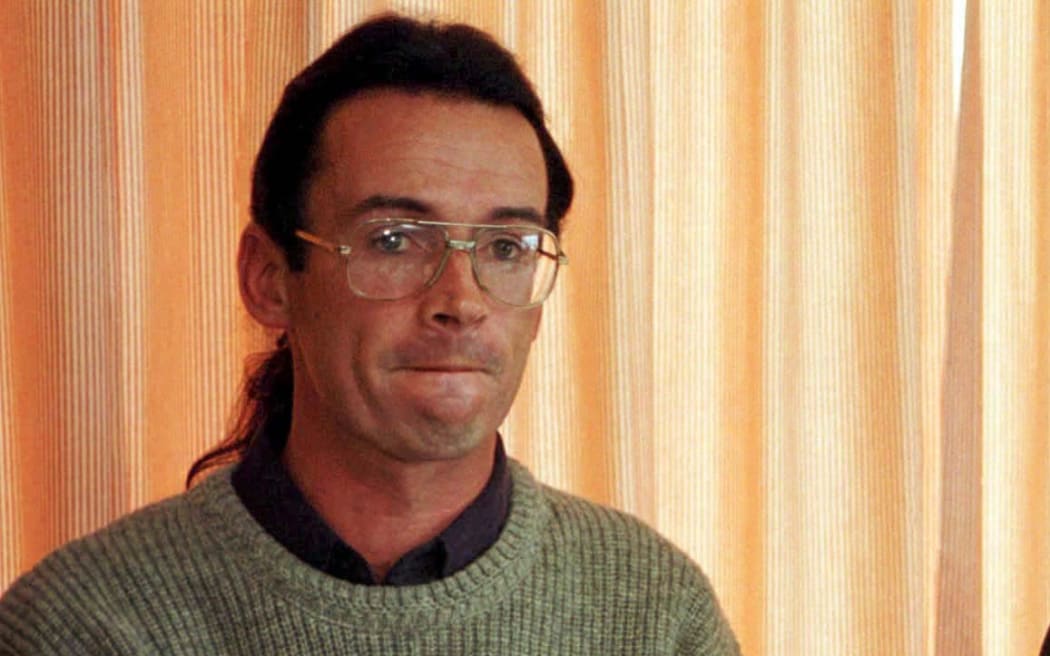The quashing of Peter Ellis' convictions for child sex abuse by the Supreme Court is a vindication for his supporters and, even though it took 30 years, for Ellis himself. The childcare worker died in 2019 still hopeful the justice system would eventually clear his name.

Peter Ellis in 2000, after his release from prison. Photo: Getty Images
Investigative journalist Melanie Reid was with Peter Ellis in 1993, the night before a jury convicted him on 16 charges of abusing preschoolers at the Christchurch Civic Creche.
Even then, despite the depth of feeling against him, Ellis was convinced he would be cleared of the charges.
"He believed," says Reid, Newsroom's investigations editor.
"He believed in the police, he believed in the justice system, he believed that the truth would prevail."
Instead, he was found guilty and sentenced to 10 years in jail.
Last week, the Supreme Court quashed his convictions in an unprecedented posthumous decision.
Now, for the first time, several hours of footage from Reid's secret interviews with Ellis are being released in a series called 'Peter Ellis, the creche case and me' on Newsroom.
Reid explains to The Detail how she went along to court during the day to cover the case and in the evenings she visited him at home, drank sherry and smoked "a hell of a lot of cigarettes on his verandah".
To the 27-year-old Reid, raised in Central Otago and living in the conservative city of Christchurch, the flamboyant and charismatic Ellis was a breath of fresh air.
"He was quite wild for a girl like me. He wore headscarves and eyeliner and he said things that were designed to shock you," says Reid.
She became fond of him, she says, but her motive was to get him to agree to an interview.
"I said, look if we do this interview I'll do everything I can to make sure that what you say is put out there and that even if you go to jail we can keep telling your story," she says.
The interviews took place during the time of the case but they could not be released until there was a verdict.
"I would always say, 'well there's no point having a lot of things to say once you're in jail because we can't get to you'."
Reid says Ellis never flinched on his innocence from the day he was charged to the day he died, but she admits that at the time she was reporting on the case she was "completely confused like the rest of New Zealand".
Being "openly gay" at that time in a conservative city didn't help Ellis, but Reid thinks the momentum the case had gained made it unstoppable.
"I think much more back then we believed that where there's smoke there's fire and surely they can't be pouring in all these resources, there's hundreds of kids being interviewed, there's half a million dollars in ACC that's gone into it. Something must have happened here, it can't just be all a fabrication."
Looking back on that extraordinary time, Reid tells The Detail it feels like she was part of a novel where everyone was swept up in some sort of cult that believed there were satanic ritual abusers in their midst.
But as the police's handling of it became increasingly bizarre - at one point they wanted to arrest Ellis' mother - Reid and her colleagues started to have doubts.
She says when the young girl, the so-called star complainant, recanted her evidence at the Court of Appeal hearing in 1994 and after meeting the girl's family, Reid got another perspective on the kind of pressure faced by families involved in the case.
Find out how to listen and subscribe to The Detail here.
You can also stay up-to-date by liking us on Facebook or following us on Twitter.

Photo:


